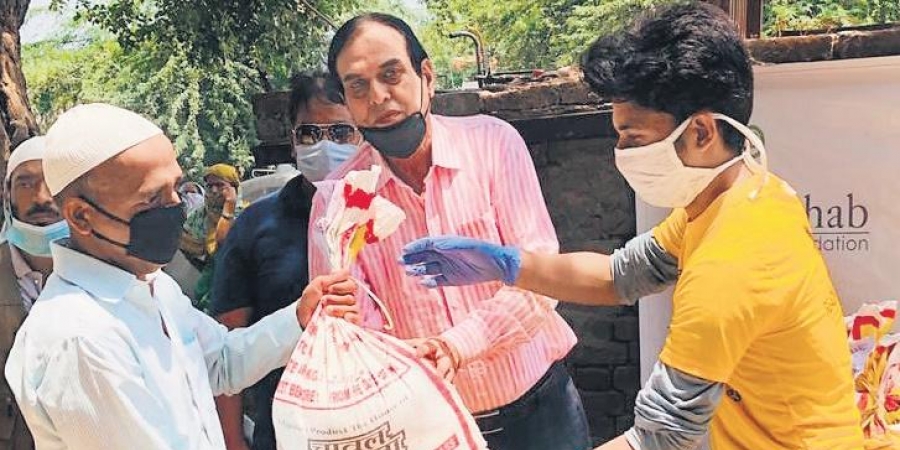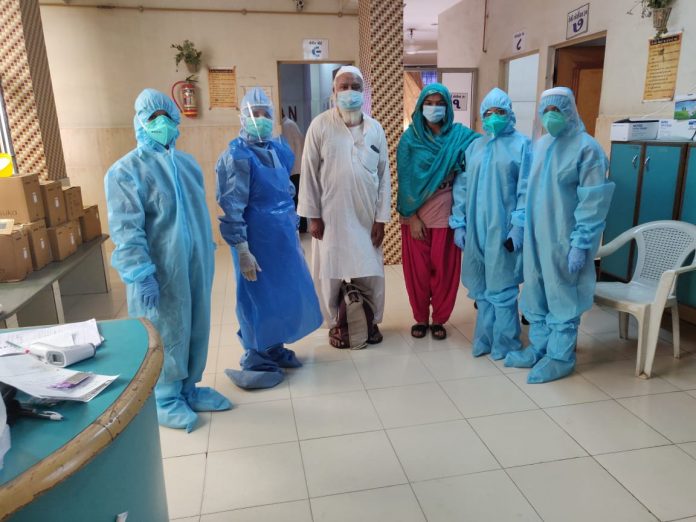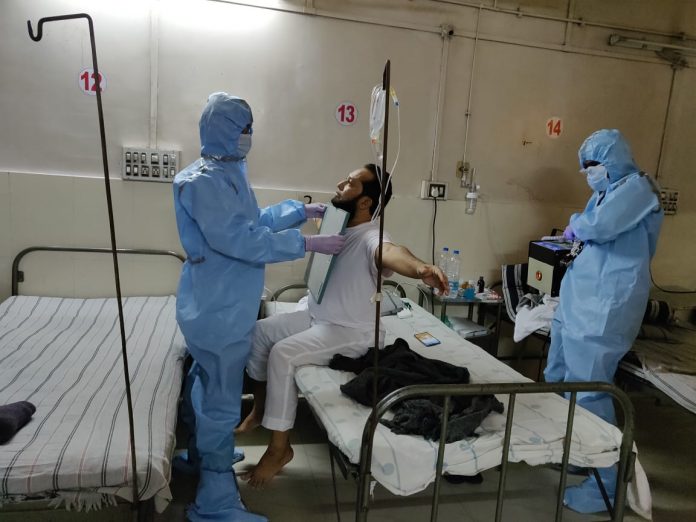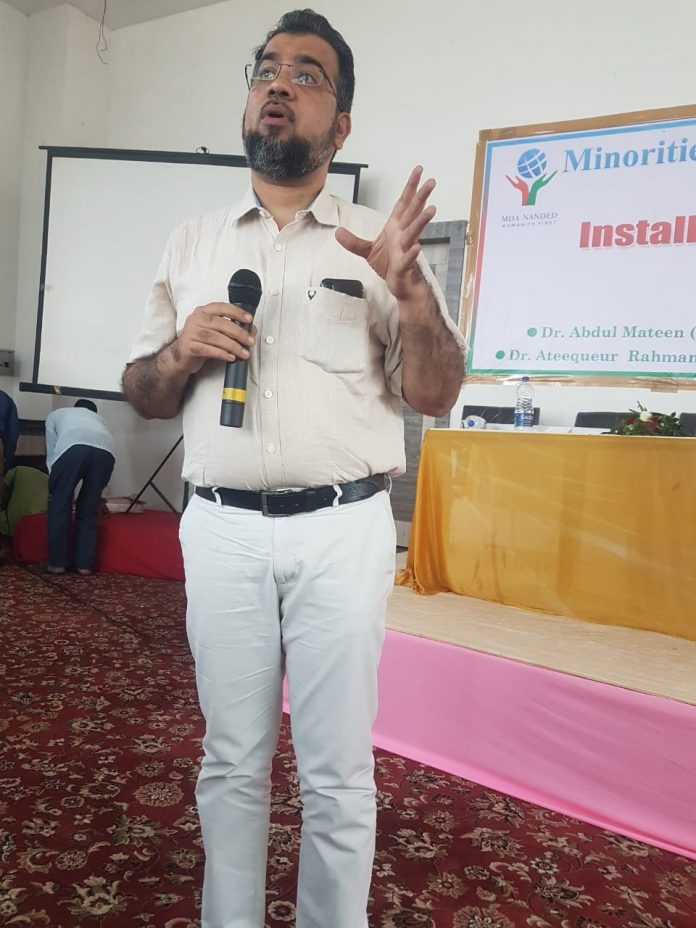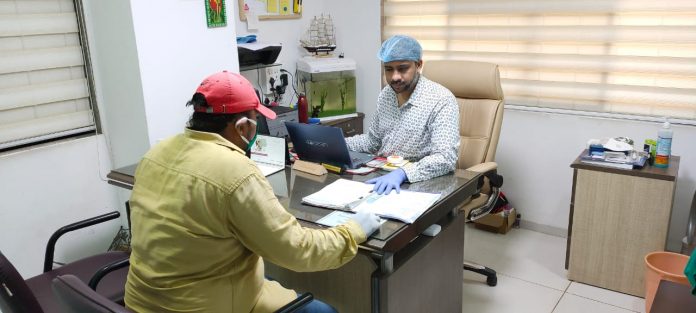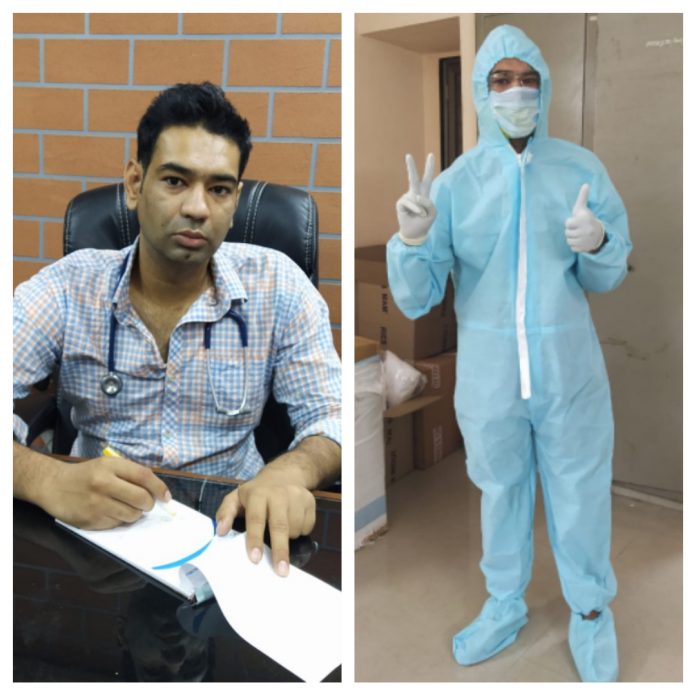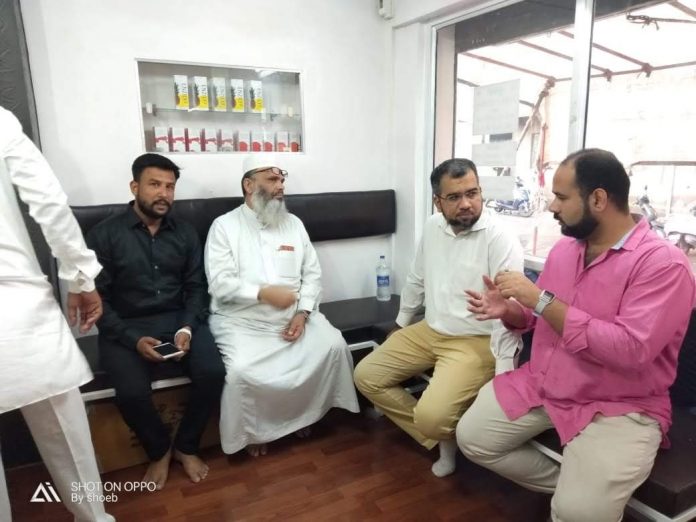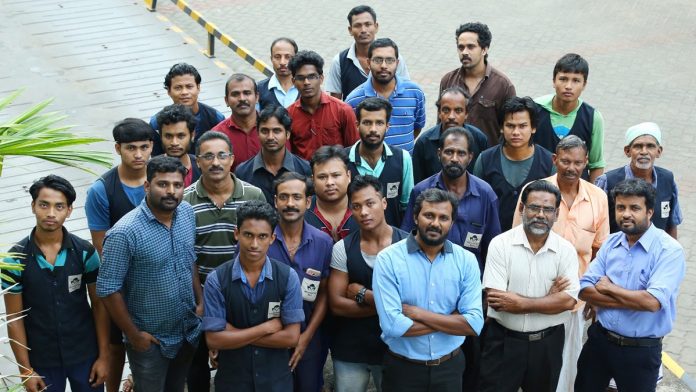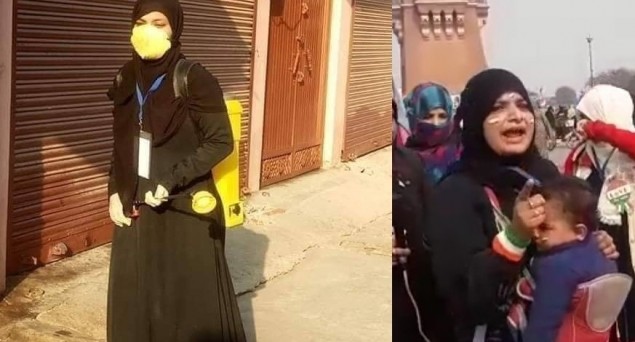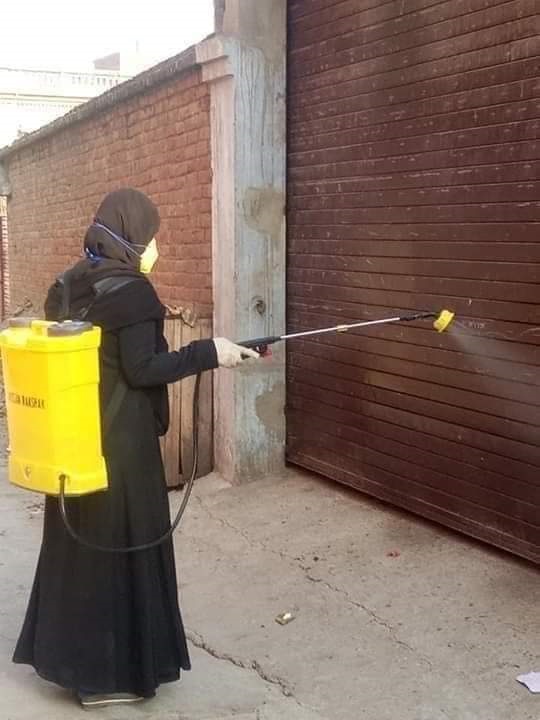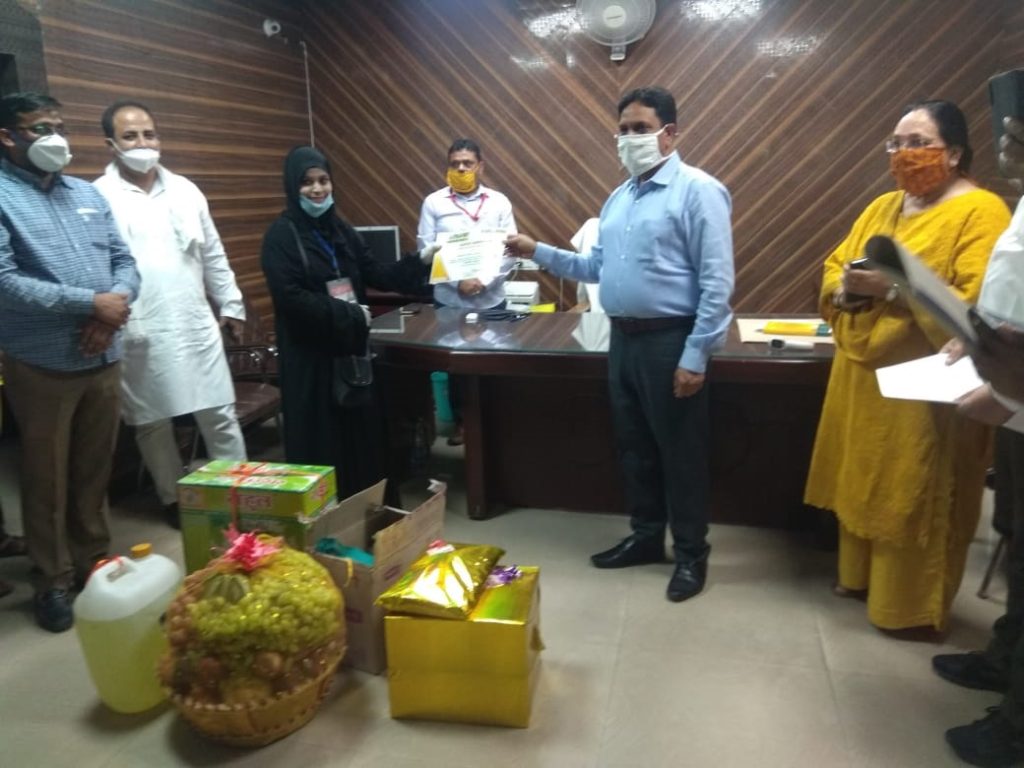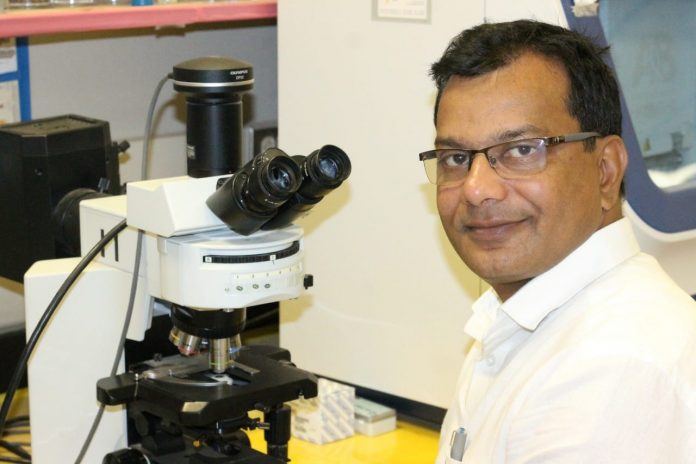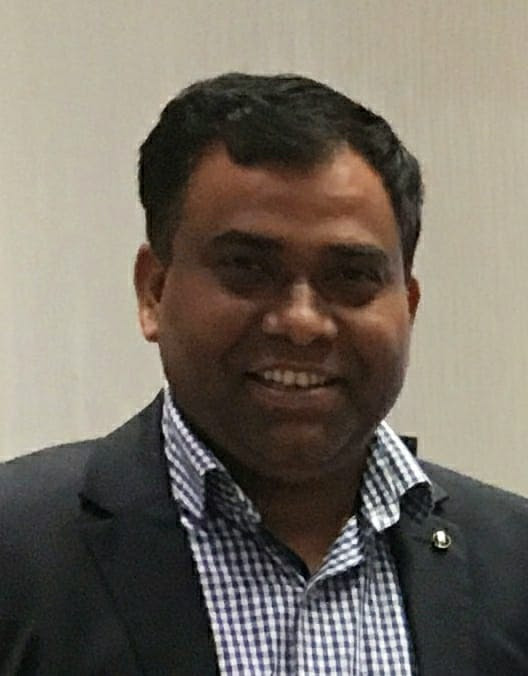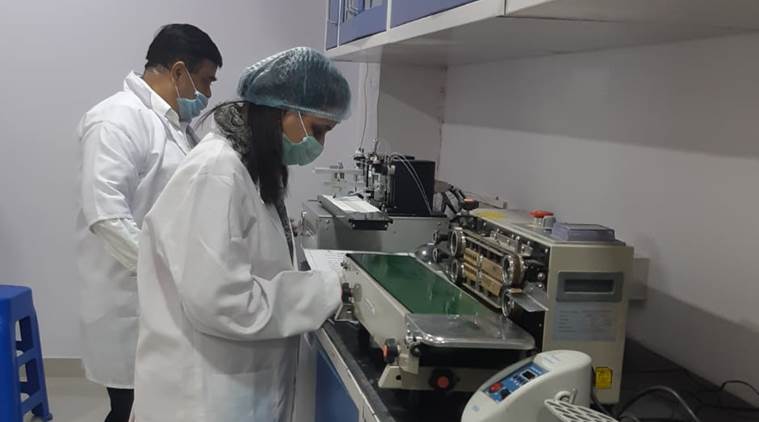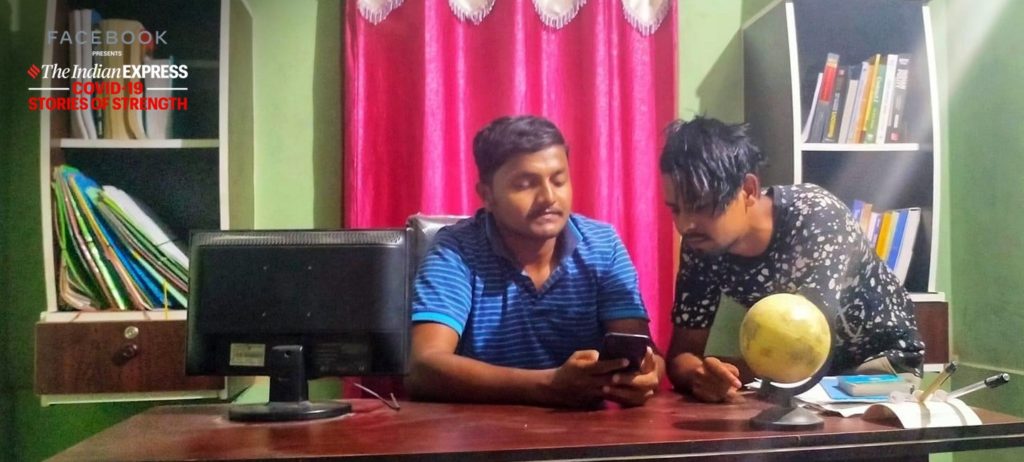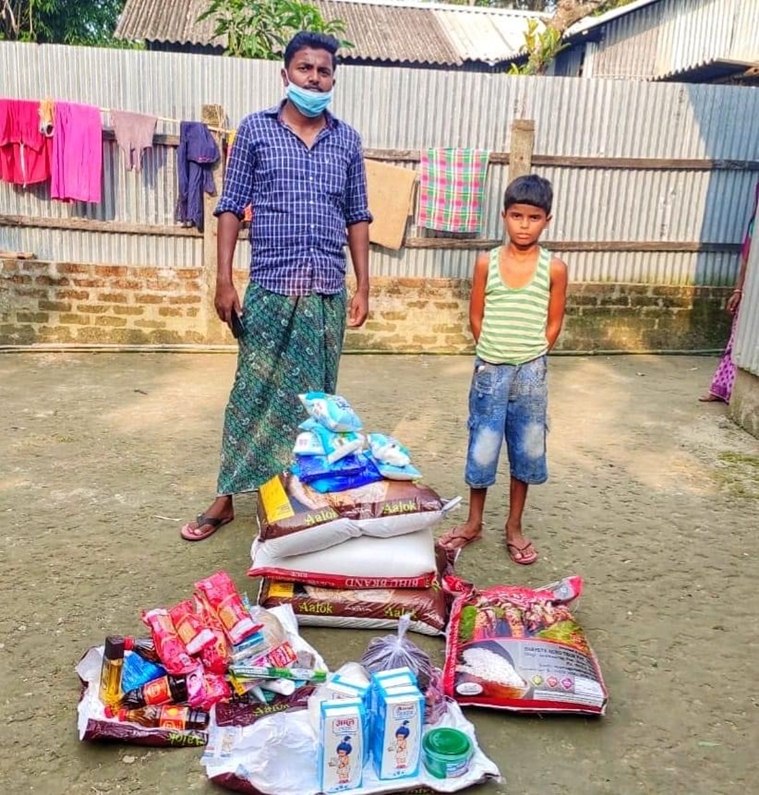KERALA :
First free community chartered flights benefit 395 Indians stranded in UAE due to COVID-19

Dubai:
For the first time, two free community chartered flights repatriated 395 stranded Indians in the UAE to their hometowns in Kerala today.
While one flight was organised by Malayalam TV channel Kairali TV, under the leadership of its chairman superstar Mammootty, the other one was sponsored by the community group Overseas Malayali Association (Orma).
Kairali TV flew 215 stranded Malayalis home on an Air Arabia flight from Sharjah to Thiruvananthapuram at 6pm today, said E.M. Ashraf, the channel’s Middle East director for news and programmes. “Under the COVID-19 relief programme Kaikorthu Kairali, we had announced 1,000 free flight tickets to Keralites stranded in the Gulf countries. While we had given away some tickets to deserving candidates, we decided to also charter some flights from the UAE,” he told Gulf News on Sunday morning.
At least four free chartered flights are being planned for repatriation from the UAE with the contribution of several community members, businessmen and actors apart from Mammootty.
“We have also received the support from community groups in the UAE such as the Indian Social Centre in Ajman and MAS in Sharjah for organising today’s flight,” said Ashraf.
He said the channel had invited applications from the most deserving members of the community and a committee shortlisted the passengers from stranded visit visa holders, those who lost jobs, elderly patients and the like.
First from Dubai
While several community organisations in the UAE have chartered flights to repatriate stranded Indians, with some offering free tickets and subsidised fares, the first free chartered flight for repatriation by any Indian community group was the one arranged by Orma from Dubai to Kannur on Sunday.
Also on Sunday, a GoAir flight flew home 180 stranded Malayalis hailing from various districts of Kerala, said N.K. Kunhammed, a coordinator of the flight and a delegate of the Loka Kerala Sabha (LKS), a global body of expatriate Malayalis.
He said priority was given to stranded labourers, part-time maids, visit visa holders, pregnant women and families in distress.
Rajan Mahe, an invitee of LKS, who also coordinated the flight, said the group had been trying to arrange free chartered flights for some weeks under the initiative ‘Fly with Orma Care’.
“With the support of the Indian Consulate in Dubai, and the offices of the Kerala chief minister and Assembly speaker, we finally managed to make all the arrangements,” Mahe added.
He said the state government would facilitate the transportation of the repatriated passengers to their respective districts once they land in Kannur International Airport.
“We have arranged dinner for them through the Kannur local administration. If there are people who need further help to reach home from there, we will arrange that also,” he added.
Vipul, the Consul General of India in Dubai, appreciated the charity initiatives.
“I understand that both of these are free chartered flights that will be of great help to the community, especially in this hard economic times due to the COVID-19 pandemic,” Vipul said, appreciating the efforts of all those who had contributed to sponsor the tickets for distressed Indians.
Distressed passengers express gratitude
Distressed and stranded Indians who got a chance to fly home for free on Sunday’s chartered flights expressed their gratitude towards those who had organised these flights.
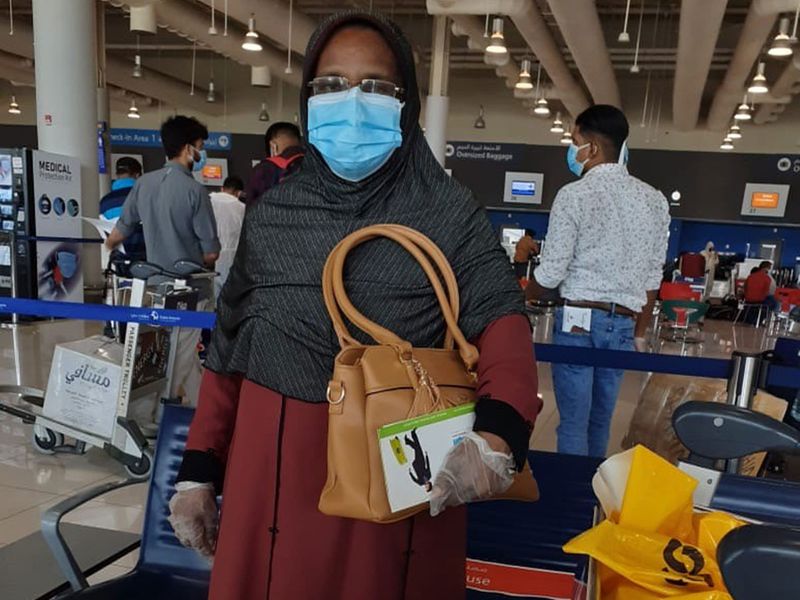
Sahira Beevi, who had come to Dubai after her son had fractured his leg, following a fall at a worksite, was among the stranded visit visa holders who were were being flown home by Orma.
“I struggled a lot because my son had already lost his job and was facing Dh30,000 in overstay fines. I had approached many associations for help. It was one Ansari and Orma members who helped us,” she told Gulf News.
“I am thankful to Orma for sending me home. I hope they will help repatriate my son also. He will be able to fly only when his condition improves a bit. He will try for repatriation along with my niece, who had also lost her job and came back on visit visa.”
She also thanked Emirates Companies House for presenting her a ‘Gulf Gift Box’ containing goodies that the company was gifting to returning expatriates.
Two other passengers on the same flight were Nafeesa Kutty and her daughter-in-law Majida Farsana, who had come on visit visas five months ago.
“She came looking for a job and I tagged along. But we didn’t expect the situation to change so fast. She didn’t get any job and my son’s salary was cut. Finally, we have to go back like this. We are thankful to Orma for helping us fly home for free,” she said.’
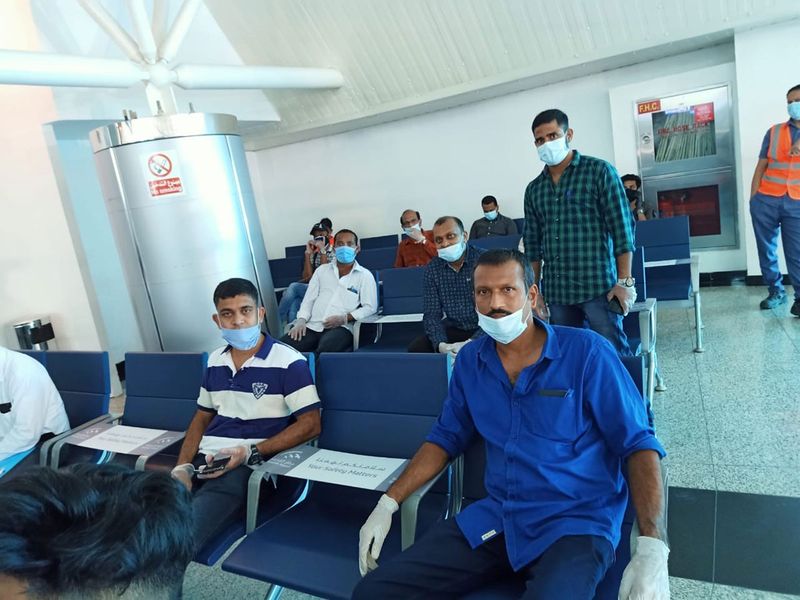
Gineesh Oliyil, an employee of a four-star hotel in Sharjah, and six of his colleagues who have been left unpaid for three months, were among the lucky passengers on the Kairali flight.
“We served people quarantined in the hotel for a month. But, the hotel was shut in April and we have not been paid since then. We were only provided two meals per day.”
He said the members of MAS Sharjah supported them with food kits and also helped them register for the free chartered flight arranged by Kairali TV.
“We somehow wanted to reach home in these uncertain circumstances. We are grateful to MAS Sharjah and Kairali TV for helping us. The free chartered flight is a great initiative that is benefitting many distressed people like us. This is the first time we are hearing about such an initiative and I hope they will fly home more distressed people, including our remaining colleagues.”
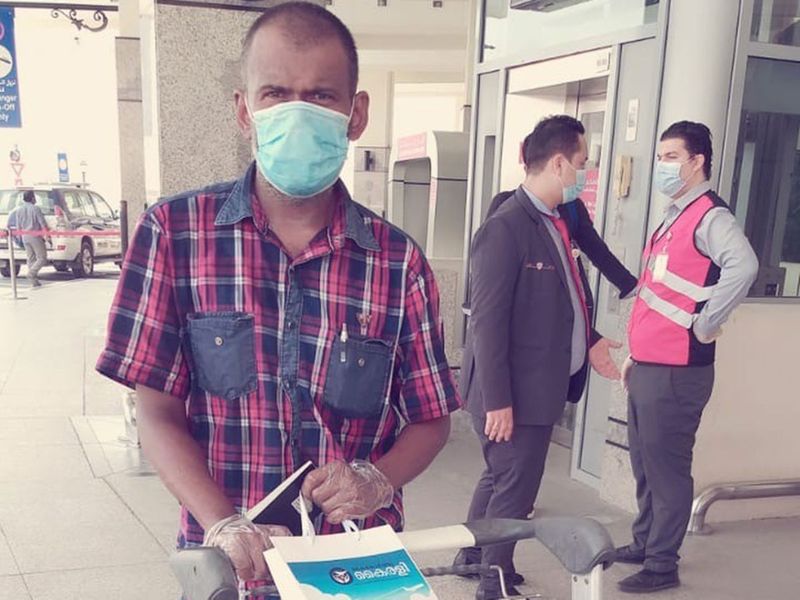
Another passenger on the same flight was Saravanan K.H. He said he was hospitalised for a month after he had a fall in the washroom of his labour accommodation.
“Doctors said my brain was affected due to the head injury and I needed help to move around. It was Shameer from my native place who helped me after I got discharged, at a time when nobody dared take care of a patient.”
He said he had approached many groups to fly home for further treatment and physiotherapy. “Finally, Shameer managed to register me on the Kairali flight and their help has come as a big boon for me,” said Saravanan.
source: http://www.gulfnews.com / Gulf News / Home> UAE / by Sajila Saseendran, Senior Reporter / June 21st, 2020
